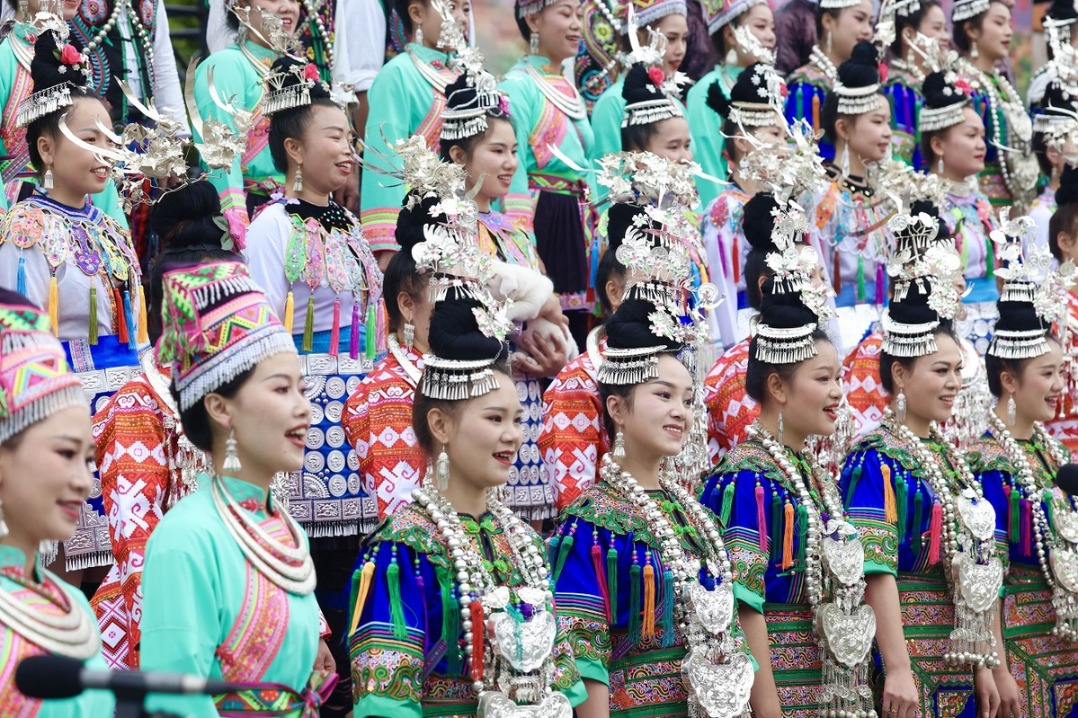Few from AAPI group hold US elected offices
By AI HEPING in New York | China Daily Global | Updated: 2021-06-07 09:19

They are the fastest-growing demographic group in the United States, but Asian Americans and Pacific Islanders (AAPI) also are greatly underrepresented in elected office and especially in the criminal justice sector, according to a report.
When it comes to holding elected office, AAPI people have a lower degree of representation than any other demographic, just 0.9 percent of elected leaders across all levels of government, but 6.1 percent of the population as of mid-2020, a recently released report from Reflective Democracy Campaign shows.
The report said it calculated the differential in representation relative to the population for each racial and ethnic group in the US. It found that AAPI people were the most underrepresented group, by a factor of -85 percent, while white people were overrepresented by +46 percent.
"Voters, regardless of party identification, really want to see reflective leadership," said Brenda Choresi Carter, the director of the campaign, which tracks the diversity of elected officials, told Politico. "Political power has been concentrated in the hands of white men in the United States since the very beginning. And I think we are seeing the limitations of that.
"When women and people of color are on the ballot, they win at the same rates as white male candidates," she said. "But the opportunity to compete is so tightly controlled by a system of political gatekeepers, which makes it incredibly difficult to break into the system. It really gives new meaning to the phrase 'old boys club.'"
Asian Americans were the fastest-growing population among all racial and ethnic groups in the US, increasing by 81 percent between 2000 and 2019, according to a Pew Research Center survey conducted in March. The Asian population in the US was estimated to be 23.2 million in 2019, according to Pew, or 7 percent of the US population. Chinese Americans are the largest Asian-origin group in the US, making up 23 percent of the Asian population, or 5.4 million people.
Asian-American voter turnout in the 2020 US presidential election reached an all-time high of 59.7 percent, according to the Census Bureau.
The Democracy Campaign report said state and local offices have lower AAPI percentages than at the federal level. There are 152 AAPI state legislators in 31 states, with one-third representing majority-white districts.
In Hawaii, California, Maryland, and Washington, AAPI political representation tends to improve when measuring state legislatures alone and in percentages it is relatively close or equal to their AAPI population share. But in New Jersey and Nevada, which respectfully have the nation's fourth and fifth largest AAPI population shares, New Jersey has just two AAPI state legislators and Nevada has one.
Even in states with high AAPI concentrations like New York, Nevada and California, the AAPI community is underrepresented in office. Hawaii is the only state whose share of AAPI elected leaders is nearly equivalent to its AAPI population share.
In the current Congress, AAPI representation includes Democratic senators Mazie Hirono of Hawaii and Tammy Duckworth of Illinois and 15 representatives, nearly evenly split between men and women. Nearly half won elections in majority-white districts, according to the report.
In elected criminal justice roles, the report found that 0.24 percent of elected prosecutors and 0.07 percent of county sheriffs in 2020 were of Asian/Pacific Islander descent. Of 2,539 elected prosecutors across the nation that year, only six were AAPI, and among the country's total number of elected sheriffs, 3,035, only two of them were AAPI.
























